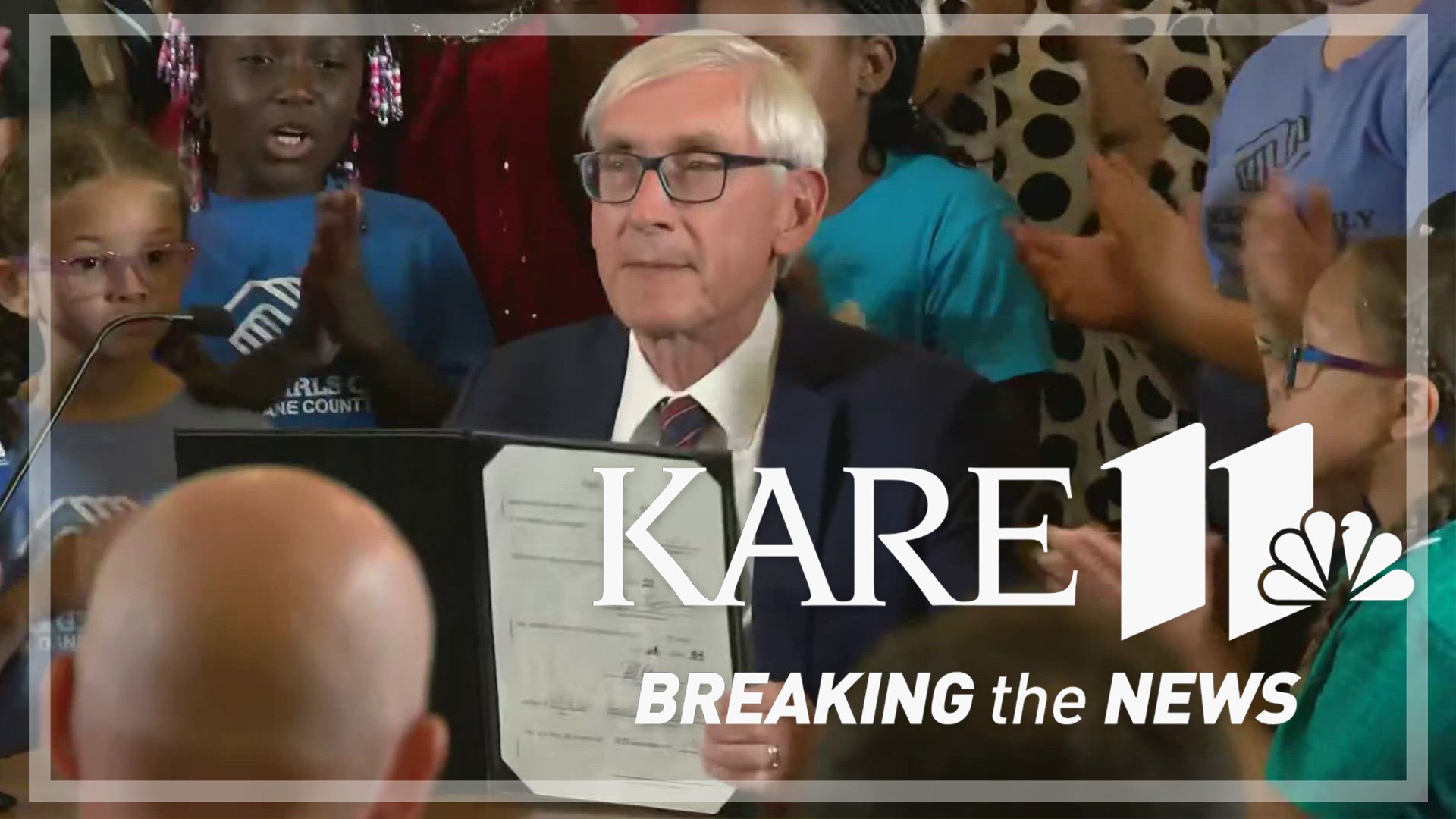MINNEAPOLIS — Wisconsin Governor Tony Evers used his veto pen to strike a couple of digits and a hyphen from the two year budget this week. In the process, he transformed a modest, two-year per pupil funding increase passed by the legislature, into an increase that will last for many lifetimes.
If you're wondering how a governor is allowed to do that level of editing via veto, you are not alone.
There are 44 states that currently give their governor's the power to issue partial vetoes, also known as line item vetoes, but Tim Johnson, a political science professor and Supreme Court expert at the University of Minnesota says the power afforded to the governor of Wisconsin is on another level.
Tim Johnson: "There is a line item veto plus in Wisconsin and even Wisconsin residents, might not know that."
Kent Erdahl: "Wait, what did you call it?"
Johnson: "A line item veto plus, that is something I just made up off the top of my head."
Erdahl: "I was going to say, it sounds like a streaming service."
Johnson: "Yeah, it does sound like a streaming service, but it is not just cutting out line items that a governor doesn't like, which is the case in all other states. This allows for cutting out words and numbers, to the point where a governor has a lot of power over what is written into law."
Governor Evers exercised that power 51 times before signing Wisconsin's latest two year budget. Those vetoes included trimming $3.5 billion in republican income tax cuts all the way down to $175 million.
But it's his veto of per pupil funding that really caught national attention.
"I have used my broad veto authority to provide school districts with predictable, long-term increases for the foreseeable future," Evers said during the bill signing.
The governor locked in those increases by taking his pen to a two year, $325 increase in per pupil funding that would have expired after the 2024-25 school year. He dramatically expanded the timeline by vetoing the 20 and the hyphen to make the end date 2425.
Erdahl: "Are there any limits to this in Wisconsin? It seems like you can change the whole meaning of whatever is passed."
Johnson: "You can 100 percent change the entire meaning of what has passed. But to do so you have to be very creative. You cannot strike out letters of a particular word, so you have to cut full words at any one time."
Voters banned those single letter vetoes, also called Vanna White vetoes with a constitutional amendment back in 2000, to prevent a governor from cherry picking individual letters to craft entirely new words.
Erdahl: "I am no elite legal mind, but (Evers) is striking out individual digits to make a new number here. That's allowed?"
Johnson: "It is. State law and the state supreme court affirmed that you can strike out numbers. The other thing that can be struck out is grammatical marks, such as the hyphen."
Erdahl: "Wow."
Wisconsin voters did pass another limitation in 2008, to ban so-called Frankenstein vetoes. It came a few years after former governor Jim Doyle struck hundreds of words from multiple paragraphs to create one entirely new sentence. In the process, he steered hundreds of millions of dollars away from the Transportation Fund the money was intended for.
Johnson: "So he made the law say essentially the exact opposite of what the legislature had passed. This is latest veto is going to go well beyond that if it really stands for 400 years."
Erdahl: "So do you imagine this one could be going to court?"
Johnson: "Probably not. I mean this is a power that's been used for darn near 50 years. It's been used by both parties. Tommy Thompson was famous for using this additional part of the line item veto."
Thompson, a republican, does hold the record with 457 vetoes in 1991.
Though Evers latest vetoes could have longer lasting implications, because Wisconsin republicans don't have a 2/3 majority, a veto override is virtually impossible.
"So it's most likely going to stay exactly where it is and education will be funded with these increases for the next 400 years," Johnson said.
Watch more Breaking The News:
Watch all of the latest stories from Breaking The News in our YouTube playlist:

